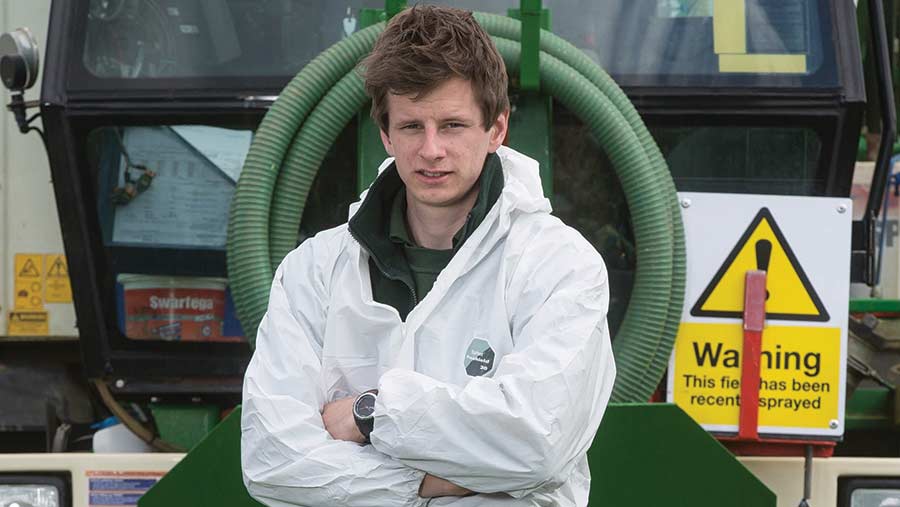Farmer Focus: Extra input costs at a time of low cereal prices
 © Tim Scrivener
© Tim Scrivener I always struggle to think of things to write about over winter – with cold and wet days, dark mornings and evenings, it seems as if not a lot is happening.
Although in reality, with various agronomy meetings, machinery shows, office work, training days and actual time off, there is far more happening than just machinery maintenance and hedge cutting and I’m actually just as busy.
Agritechnica looked a fantastic show yet again; annoyingly I again didn’t manage to attend this year.
See also: Read more from our arable Farmer Focus writers
The vast range of machinery – from unheard-of tractor manufacturers to high-tech or novel pieces of kit that seem worlds away from what we are used to – clearly drew in the crowds, with something like 450,000 visitors. It makes Cereals and Lamma look insignificant.
Crops are looking well and – so far – clean, which is a relief after they have received a hefty pre- and post-emergence spend on herbicides.
I also tried various other cultural control methods that could have an effect on the overall margin of the crop – with delayed drilling/higher seed rates/extra cultivations to encourage more blackgrass to grow.
It is unfortunate – or Sod’s law – that the need for extra inputs comes at a time when the value of agricultural commodities are low, but easing off and failing to maintain the levels of control we are lucky to obtain would be a mistake and result in a backwards step.
I am preparing notes ahead of speaking at the CropTec show as part of a panel in the Careers Forum.
It’s an interesting thing to be involved with. The idea is to help give support, advice and information on pursuing a career in the arable and mixed farming industry.
By the time you read this we will know if all went well and whether the forum proved useful to future farmers.
Next week is the NAAC Contractor Event at Peterborough Showground, which promises to be an interesting day.
It is always good to catch up with those with similar businesses, compare notes and get new ideas – as well as hear from speakers and manufacturers about things with a more contractor focus.
So with my NAAC hat on, I recommend you keep 10 December free and come along.
Matt Redman operates an agricultural contracting business and helps out on the family farm at lower Gravehurst, Bedfordshire. The 210ha farm grows mainly wheat, oilseed rape and beans.

